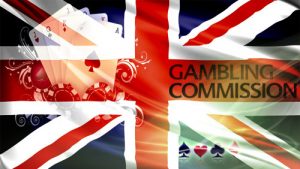A new methodology of assessing the real impact of gambling effects on the British society has been published by the UK Gambling Commission (UKGC) today.

The report which was released recently highlighted that most consumers are usually able to take part in gambling activities without having to deal with any negative effects, but the commission was not going to ignore the possible consequences that gambling activities pose on the society, in general, starting with families and individuals who take part in gambling. This is according to the CEO of the commission Neil McArthur.
According to Mr. McArthur, the main part of the process of understanding the negative consequences of gambling and analyzing the impact on the British Society as well as the economic impact had already been found and that there was a lot to be done in future. Mr. McArthur explained that the commission was committed to providing all the necessary support to give the public health officials the necessary push to reach a larger portion of the public. The gambling industry to work hand in hand with the gambling regulatory body and give their views on the subject to have a result-oriented process that will ensure the prevention of gambling-related negative effects is successful.
The report which blazes the trail in the fight against bad gambling practices was aimed at coming up with proper methods of measuring the impact of gambling-related activities on various aspects of the British Society that can be used. The various aspects include family, relationships, finances and health.
The report was aimed at coming up with a common definition of gambling-related activities that are harmful which all the stakeholders in the process; the public, law enforcers, policymakers and health officials can use. The report pointed out that the effects of gambling can be damaging the lives of those involved in gambling both in the short term and long term. The survey also sought to expound on the social as well as economic effects which gambling-related harm could bring and hence gambling should be properly monitored, measured and the public educated on the same.
The other main aim of the report was to set and create an effective system for action which accommodated the impact of gambling-related activities on the affected individuals taking part in gambling as well as their families and their communities in general. The RGSB and the UKGC are determined to find out the most efficient method of measuring the cost of harm which these activities bring upon the society as a whole.
Dr. Heather Wardle who was the lead author of the report said the report was a huge milestone in the journey towards understanding and educating society on the effects of gambling. This, she said is a major leap as it details the impact of gambling not only on the individual but also on friends, family, and communities that make up the British Society.
Marc Etches, CEO of Gamble Aware in his remarks stated that gambling is a public health issue that has detrimental social and economic consequences.


 The commission that is charged with the responsibility of regulating gambling found the company complicit in facilitating excessive gambling by one of its clients. In total, the commission noted, there were 22 incidents in which the behaviors of the said client should have been questioned and investigated but never happened.
The commission that is charged with the responsibility of regulating gambling found the company complicit in facilitating excessive gambling by one of its clients. In total, the commission noted, there were 22 incidents in which the behaviors of the said client should have been questioned and investigated but never happened.